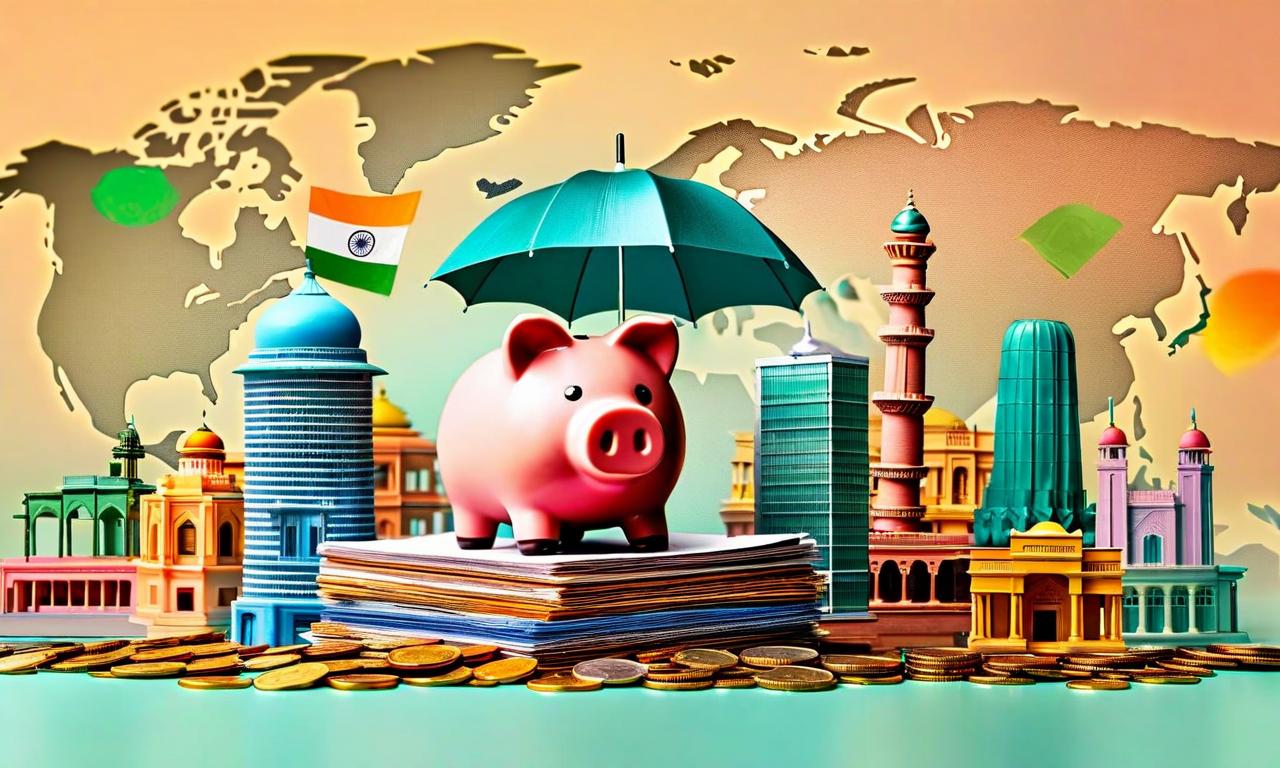Insurers Warn: GST Exemption on Health and Term Life Policies Could Backfire
The government is considering exempting health and individual term life insurance premiums from the current 18% GST levy to reduce costs for policyholders. However, insurers are concerned about potential loss of Input Tax Credit (ITC), which could increase their operational costs by 7-10%. The General Insurance Council has appealed to the Finance Ministry for a complete GST exemption on health insurance. The government appears to be prioritizing consumer benefits over industry concerns, with sources indicating the Finance Ministry is unlikely to eliminate the inverted duty structure on health insurance.

*this image is generated using AI for illustrative purposes only.
A contentious debate has erupted between the insurance industry and policymakers over proposed changes to the Goods and Services Tax (GST) structure for health and individual term life insurance policies. While the government's proposal aims to provide relief to policyholders, insurers are raising red flags about potential unintended consequences.
Government's Proposal: GST Relief for Policyholders
The government is considering exempting health and individual term life insurance premiums from the current 18% GST levy. This move is designed to reduce the financial burden on policyholders, making these essential insurance products more affordable and accessible to the general public.
Insurers' Concerns: The Input Tax Credit Dilemma
Despite the apparent benefits for consumers, the insurance sector has voiced significant concerns about the proposed changes. The primary issue revolves around the potential loss of Input Tax Credit (ITC) if a full GST exemption is implemented.
Currently, insurers can claim ITC to offset taxes paid on various operational aspects, including:
- Commissions
- Reinsurance
- Technology
- Distribution
- Administration
If the GST exemption is applied without addressing the ITC issue, insurers warn that it could lead to an increase in their operational costs by 7-10%.
The Inverted Duty Structure Challenge
The continuation of the inverted duty structure is at the heart of the insurers' concerns. This structure could potentially negate the benefits of the GST exemption, as it would increase costs for insurance companies while simultaneously reducing costs for policyholders.
Industry Appeal and Government Response
In response to these concerns, the General Insurance Council has written to the Finance Ministry. Their request is clear: implement a complete GST exemption on health insurance to address the potential negative impacts on the industry.
However, sources close to the matter indicate that the Finance Ministry is unlikely to eliminate the inverted duty structure on health insurance. This stance suggests that the government is prioritizing consumer benefits over industry concerns in this particular policy decision.
Implications for the Insurance Sector and Consumers
The proposed GST changes present a complex scenario with potential winners and losers:
- Policyholders: Stand to benefit from reduced premium costs if the GST exemption is implemented.
- Insurers: Face the prospect of increased operational costs due to the loss of Input Tax Credit.
- Insurance Industry: May need to adapt to new financial realities, potentially affecting product pricing and offerings in the long term.
As the debate continues, stakeholders from both the insurance industry and government will need to work towards a solution that balances consumer affordability with the financial sustainability of the insurance sector. The outcome of this dispute could have far-reaching implications for the future of health and term life insurance in India.






























